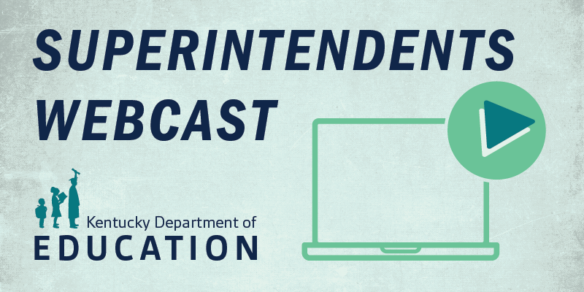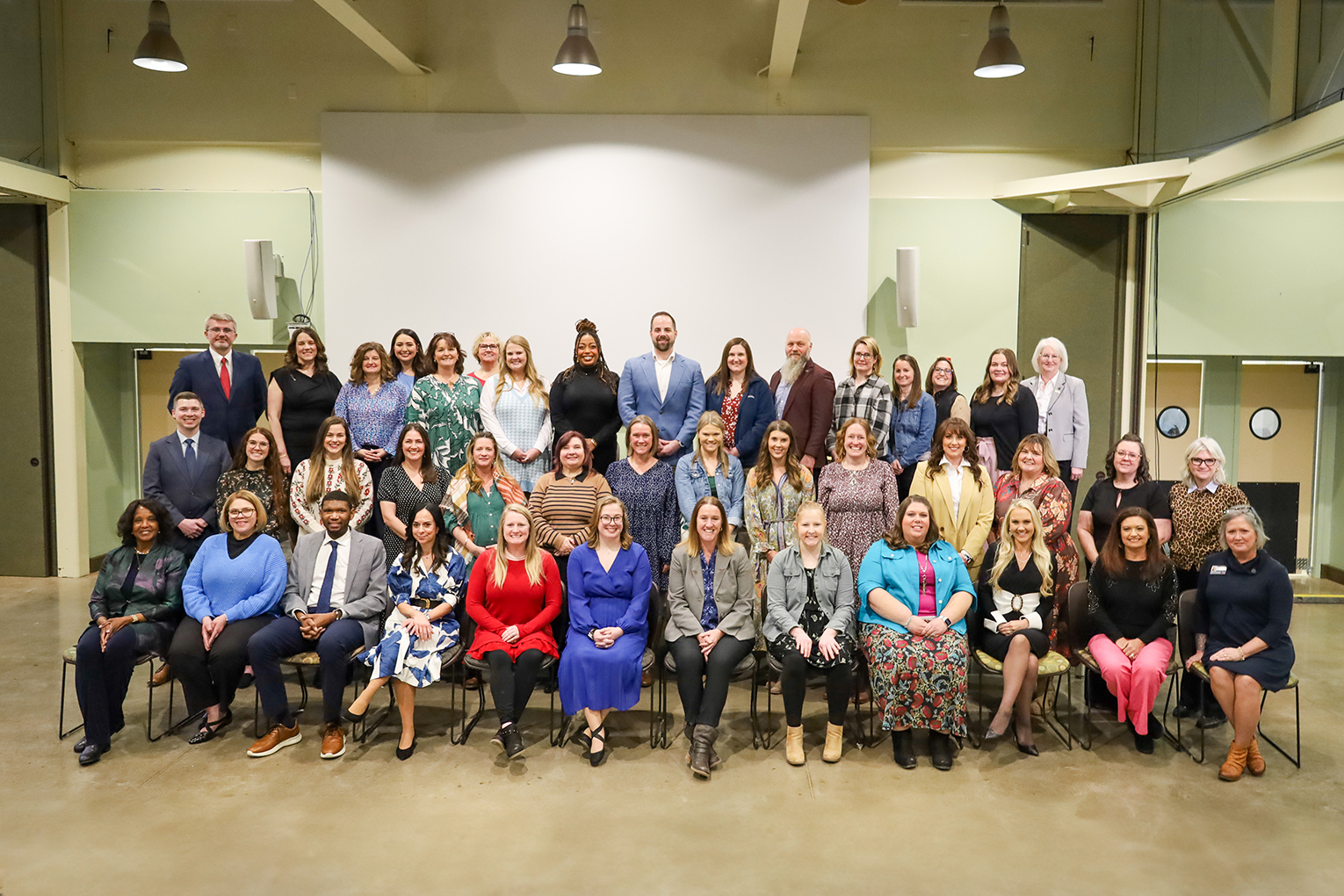
Kentucky Emergency Management Director Eric Gibson and members of his team discussed the ongoing flooding emergency affecting the Commonwealth and how to report damage during the Kentucky Department of Education’s Superintendents Webcast on April 8.
The Kentucky Emergency Management team asked school districts report damages to their county emergency management office as soon as they are able. Gibson said he wanted to make sure district leaders capitalize on funding for which they may not even know they’re eligible.
“If we can help close some of those information gaps and get the proper reporting in, we believe we can be helpful in helping the school districts recover the cost of damages and repairs,” he said.
Kentucky Emergency Management Assistant Director Stephanie Robey went over potential funding sources for relief efforts, including the new State Aid Funding for Emergencies 4860 fund established by House Bill 544 (2025) and the Federal Emergency Management Agency (FEMA).
“Schools are impacted and so often we are told, ‘We don’t need FEMA; we have insurance.’ Well, there are lots of things that your insurance won’t cover that FEMA will,” she said.
Robey said damage to athletic fields is one key issue FEMA will cover in an emergency. Other items FEMA can help with include funding to help with debris removal and repair damage to buildings, access roads, drainage facilities and school buses.
Robey also stressed the importance of making sure reports from damage caused by the most recent storm activity are separated from previous weather emergencies this school year, and to collect evidence of damage such as photographs and expense receipts.
When districts assess damages, the Kentucky Department of Education (KDE) also asks that they send an email to kdesafe@education.ky.gov with information about the damage and its estimated costs. This information will help the department track relief efforts if funding is provided.
Commissioner of Education Robbie Fletcher said he’s praying for everyone affected.
“There are so many districts that are impacted and so many of our students have lost their homes,” Fletcher said. “It is such a blessing to see so many that are stepping up to help their neighbor, including our districts. So many of our districts and schools are being used as shelters – a safe haven, if you will – for a lot of our students.”
2025 Legislative Session
The 2025 regular legislative session ended March 28 and KDE Director of Government Relations Brian Perry provided an update on bills impacting school districts that were enacted.
Perry said the department was tracking about 200 different pieces of legislation during the session, and his presentation touched on dozens of bills that achieved final passage, ranging from regulations on artificial intelligence in Senate Bill 4 to additional disaster relief days in House Bill 241 to a variety of changes surrounding curriculum quality in Senate Bill 207.
Perry said KDE will provide initial, non-regulatory guidance on the KDE Legislative Guidance webpage in May. Additional supplemental guidance documents that provide deeper in-depth analysis on certain pieces of legislation will be released later.
Liquidation of COVID Relief Funds, USED Certification
Fletcher updated superintendents on the U.S. Department of Education’s (USED’s) decision to end the previously-granted liquidation extension for COVID relief funds.
Fletcher said KDE has sent a request for Education Secretary Linda McMahon to reconsider USED’s action to end the liquidation extension previously granted to KDE. Fletcher and other KDE team members will continue meeting with impacted districts to discuss next steps as the situation progresses.
Fletcher also told superintendents that KDE is considering its options regarding an email from the USED’s Office for Civil Rights to state education agencies, including KDE, on April 3. The email requested that KDE sign and return a form which concerns assurances that KDE will not discriminate on the basis of race, color or national origin, along with agreeing to USED’s interpretation of a U.S. Supreme Court ruling related to higher education and its impact on K-12 education.
Superintendents also heard updates on:
- Preschool continuous assessment data collection; and
- Advanced Placement testing, including an update on the move from standard paper exams to digital exams in May.



Leave A Comment